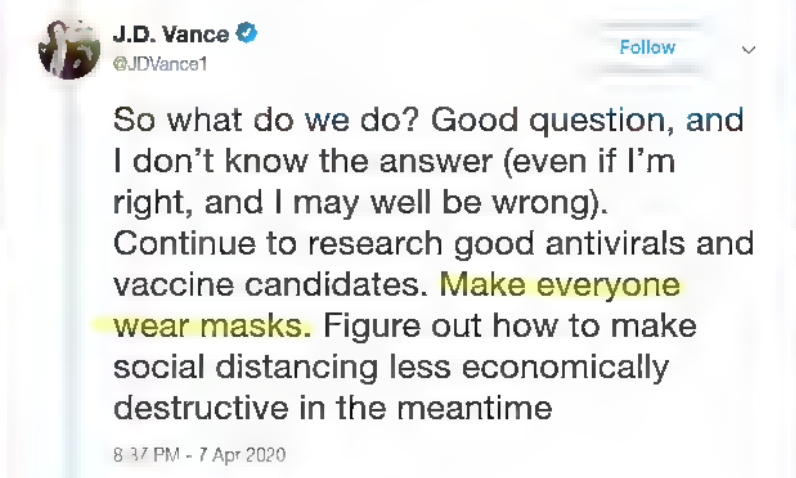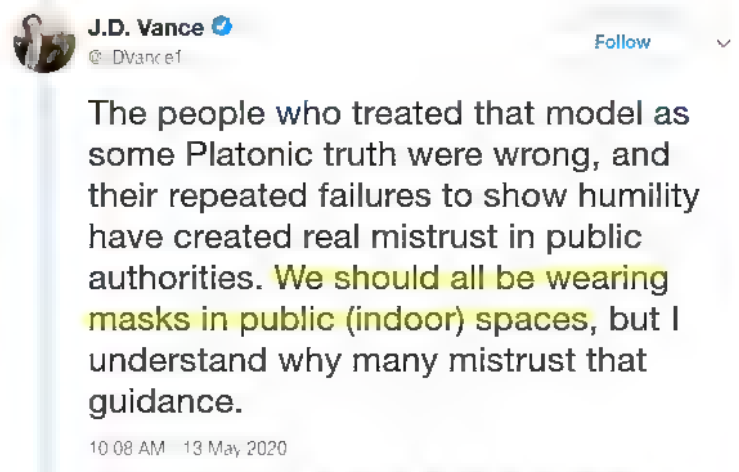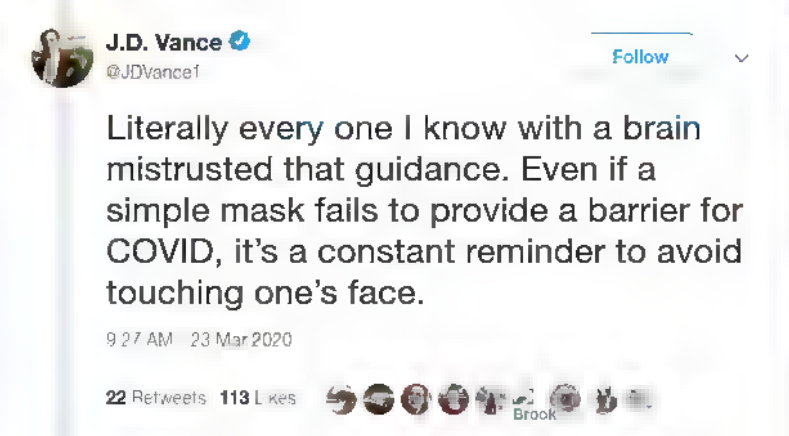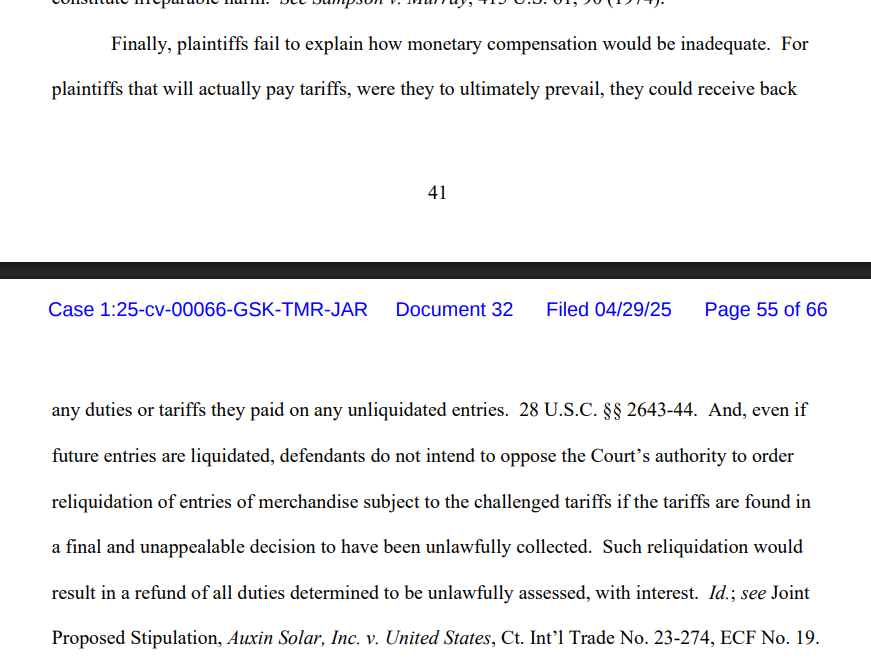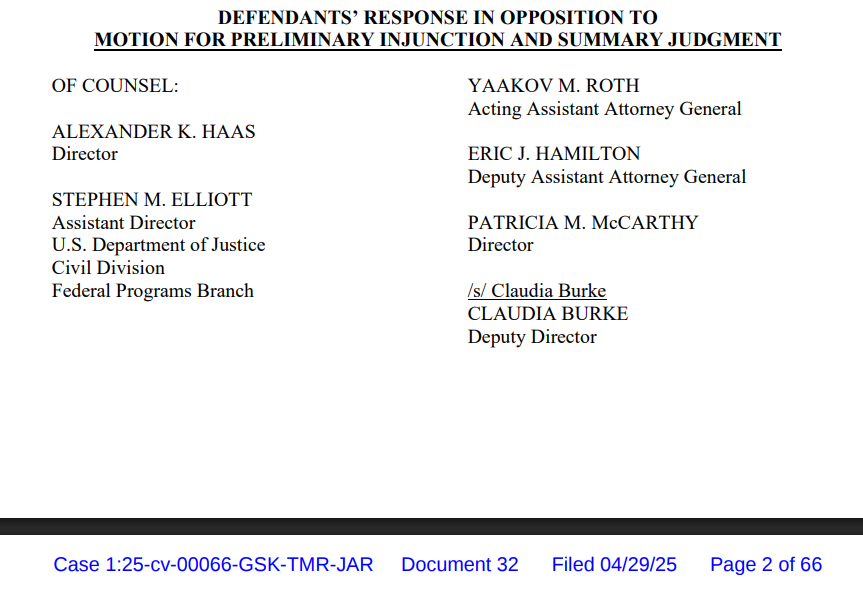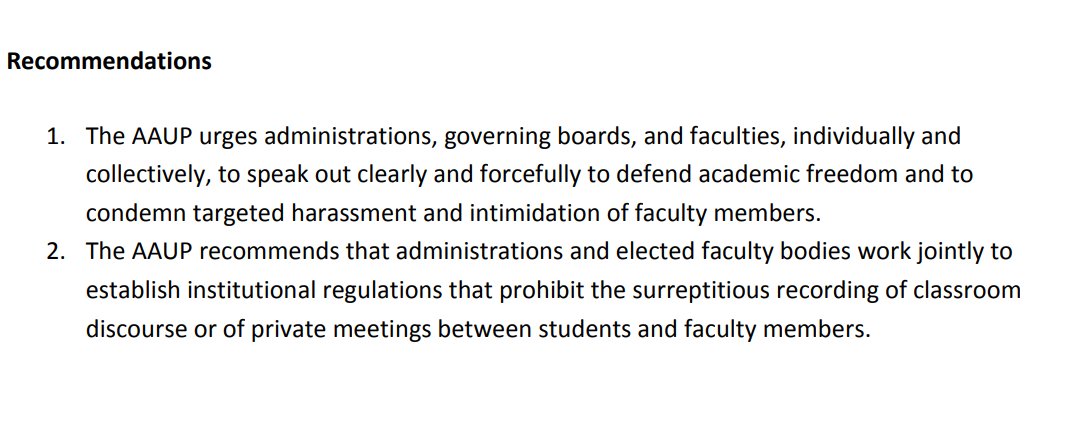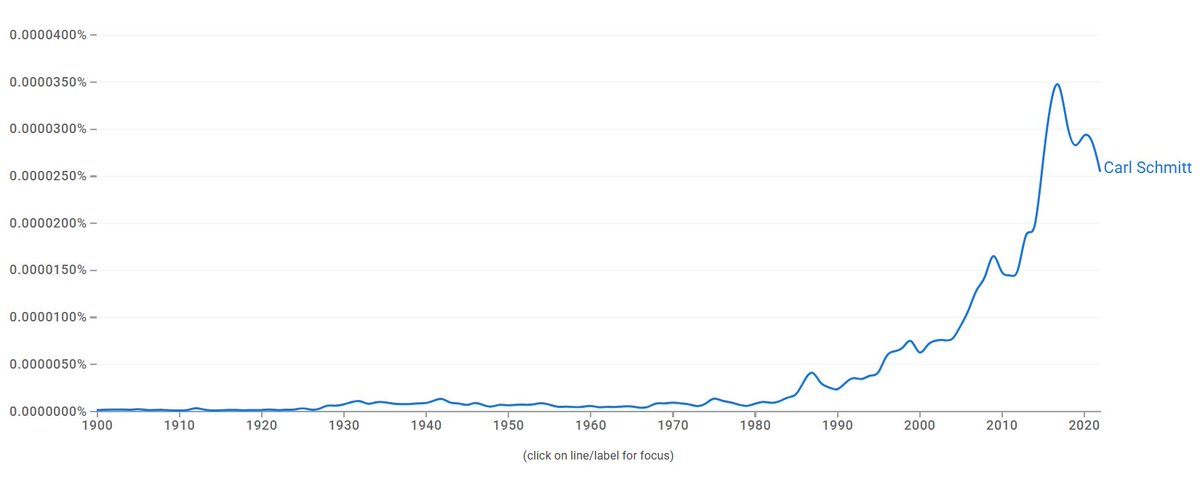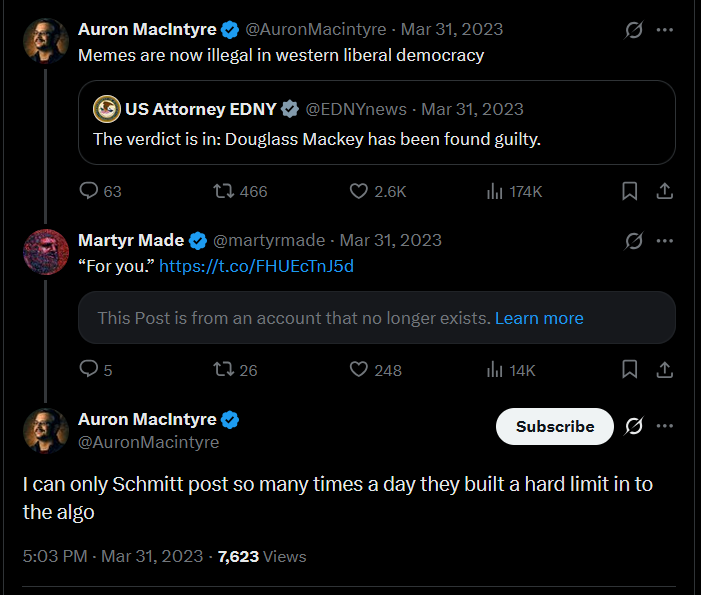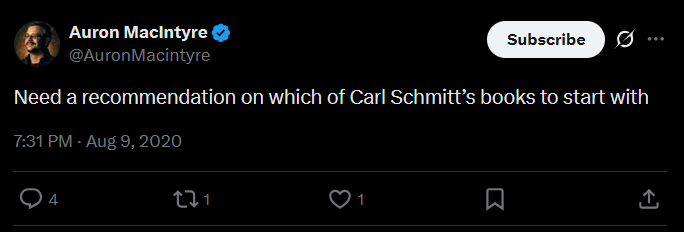🧵Thread:
John Maynard Keynes is well known for his advisory role in the British government on economic matters, including during WWII.
Far less known is that Keynes - like many British intellectuals - had a decade-long political flirtation with fascism prior to the war.
John Maynard Keynes is well known for his advisory role in the British government on economic matters, including during WWII.
Far less known is that Keynes - like many British intellectuals - had a decade-long political flirtation with fascism prior to the war.
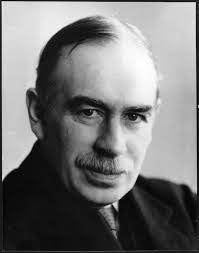
Our story starts in 1926 when Keynes wrote one of his most famous essays, 'The End of Laissez Faire.' Close readers of this essay are also familiar with a notorious passage where Keynes endorses eugenics as a basis for population management. 
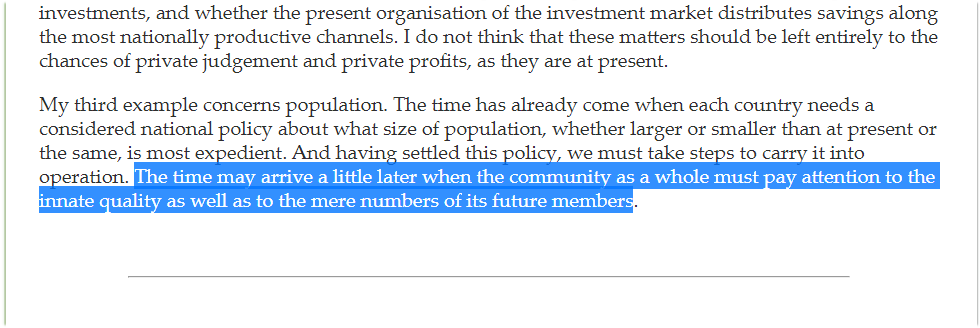
Much less known though - the origin of 'The End of Laissez Faire' was actually a lecture that Keynes delivered in 1926 at the University of Berlin. 
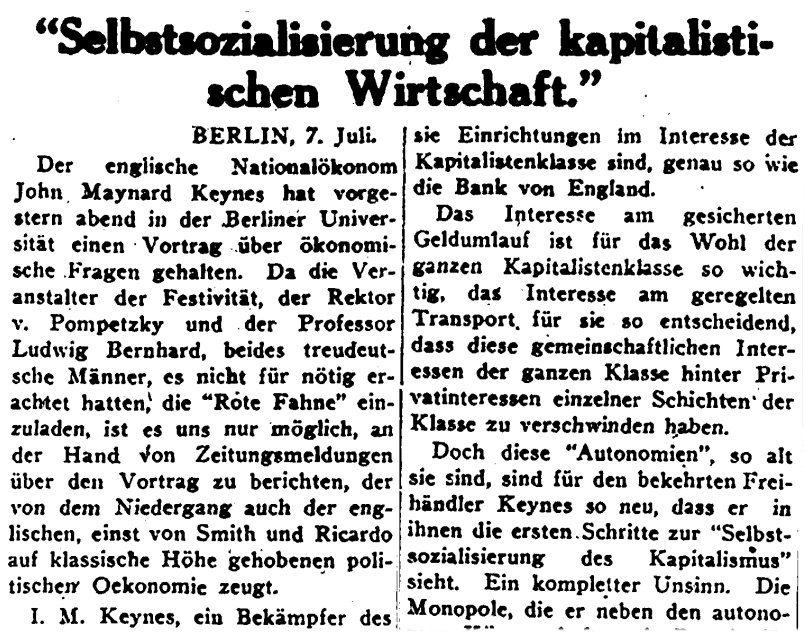
The Austrian economist Ludwig von Mises was in attendance at Keynes's lecture - and blasted him for it in print. The reason? Keynes's arguments gave comfort to German immigration restrictionists who were eyeing eastern Europe as a source of their problems...which is to say Nazis. 
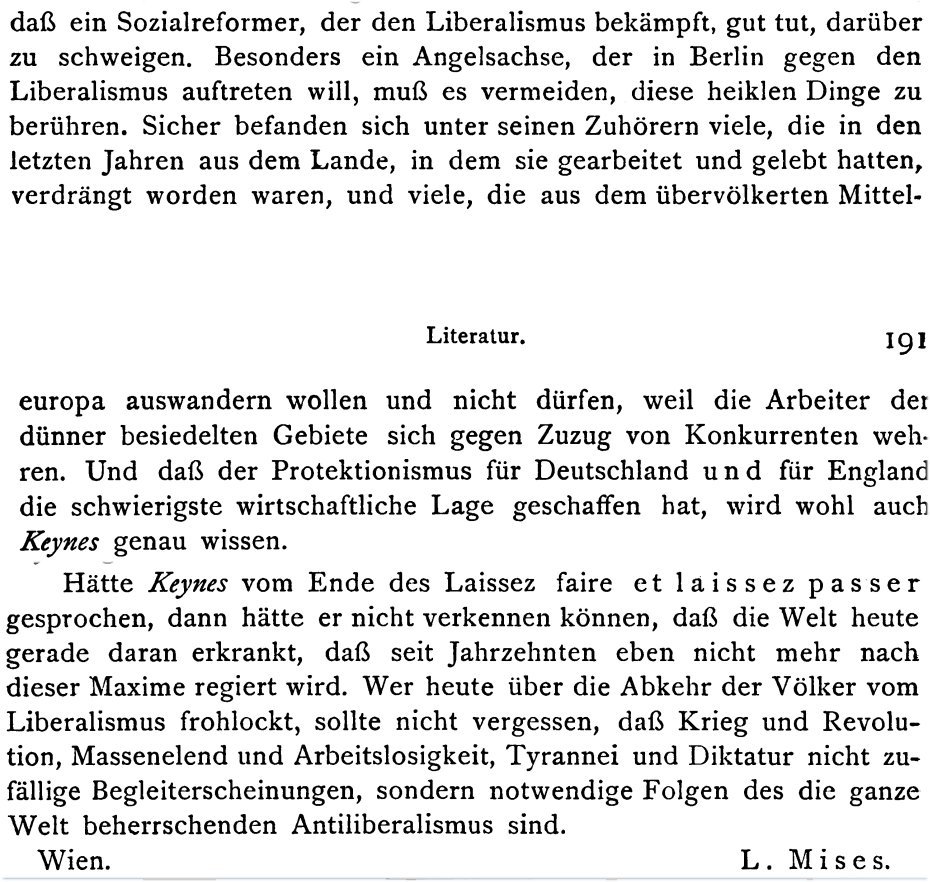
Shortly after its publication, Keynes's 'End of Laissez Faire' was explicitly integrated into early fascist political doctrine. This is from the 'Universal Aspects of Fascism' (1928) - one of the first English-language books on fascist theory. 
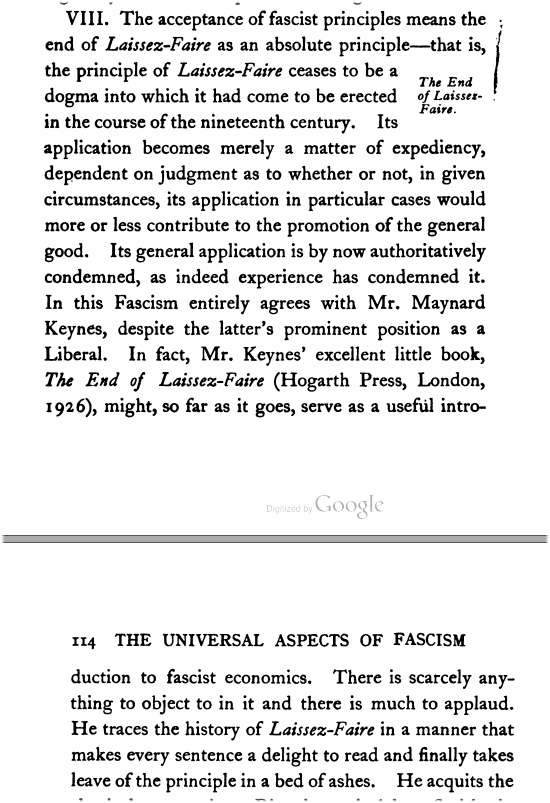
'The Universal Aspects of Fascism' wasn't just any book though. It was written by James Strachey Barnes - a former student of Keynes himself. By 1928, Barnes was a close personal confidant of Keynes and member of the famous Bloomsbury Group of left-leaning intellectuals. 
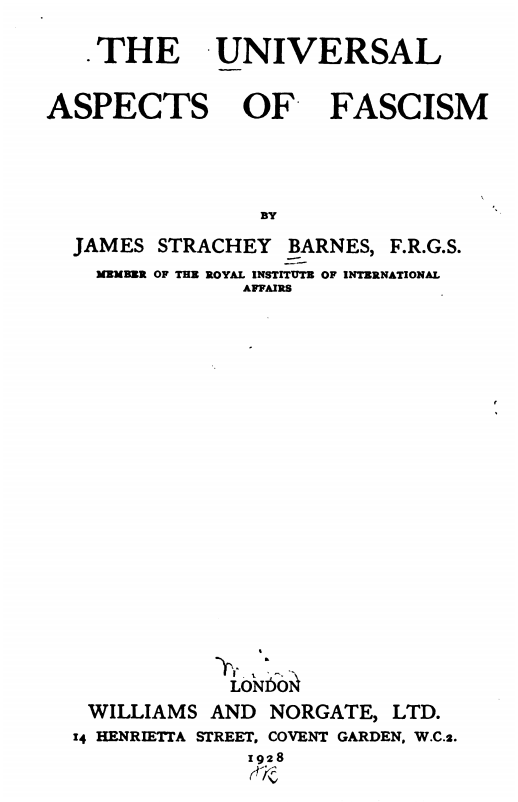
Barnes's book had another unusual distinction. It's preface was personally written by Benito Mussolini. 
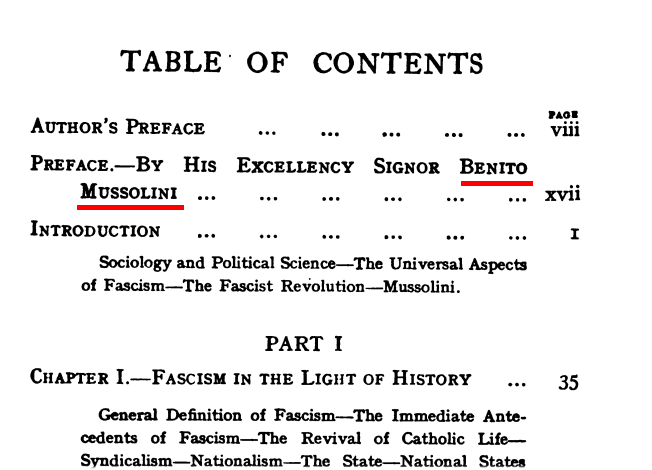
So what did Keynes think of this emerging fascist movement, and its embrace of his economic philosophy? It's hard to say as he was coy about his own politics. But for at least a while, he unmistakably flirted with nascent fascism in the UK.
The first public sign was this editorial that he wrote about Sir Oswald Mosley, a British MP who wrote a manifesto in 1930 seeking to realign the British political system. Keynes questioned the viability of the memo, but was keen on its economic doctrines as per the 2nd paragraph 
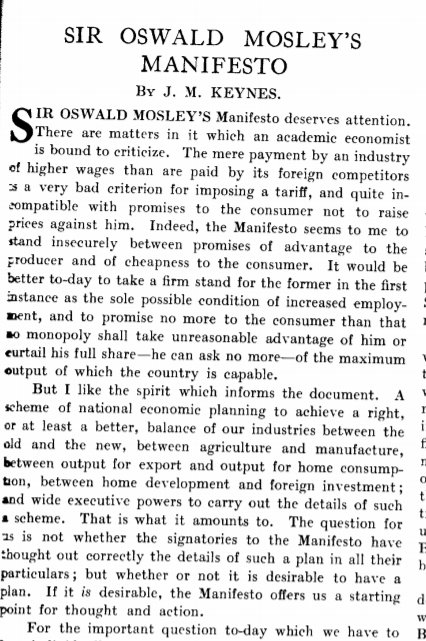
After Mosley published his manifesto, he tried to launch a new political party drawing on disaffected members of the existing parties in Parliament. It was called the New Party, and is mainly known today for what it morphed into: the British Union of Fascists.
Indeed, Mosley actively sought after Keynes to be the main economic theorist of the New Party. This is recorded in Harold Nicolson's diary following a conversation with "Tom" Mosley - a nickname used by Oswald's friends. 
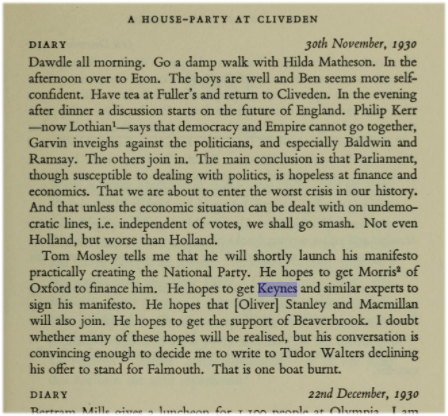
So what was Keynes's take on Mosley's New Party? It turns out that he was intimately involved behind the scenes in crafting its economic doctrines. Nicolson's diary records several meetings where he dined with Keynes to hammer out these details, starting in 1931. 
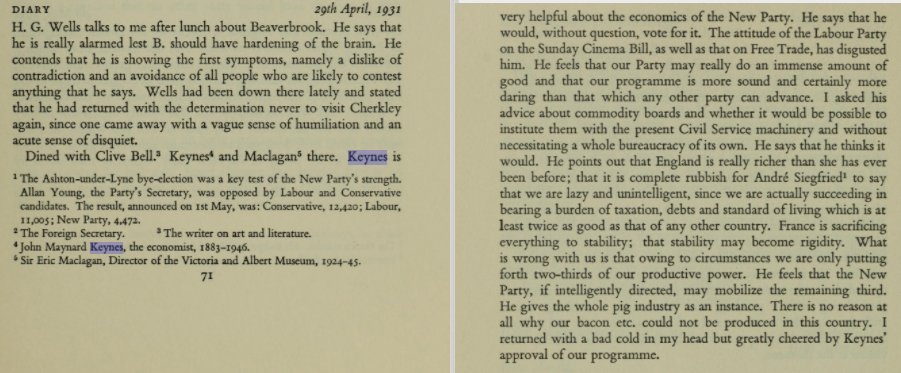
Keynes's private opinions on Mosley's project are revealed to have been very favorable to the concept, although skeptical to the chances of political success. Here is Nicolson's record of a dinner between him, Keynes, and Mosley. 
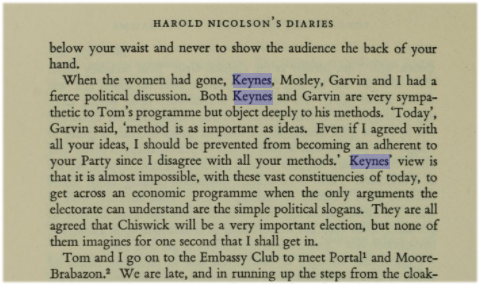
The collaboration continued until at least early 1932, when Mosley was sending ever-more overt fascist signals.
But note who else is also there: Jim Barnes, aka James Strachey Barnes - author of the book noted above that united fascist theory with Keynes's 'End of Laissez Faire'
But note who else is also there: Jim Barnes, aka James Strachey Barnes - author of the book noted above that united fascist theory with Keynes's 'End of Laissez Faire'
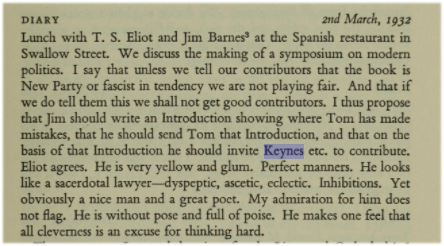
Keynes was undoubtedly aware of Barnes's book - published in 1928 - by the time of these meetings in 1931-32. In fact, Barnes' own memoirs fondly recall his friend and mentor as a central figure of the Bloomsbury circle. 
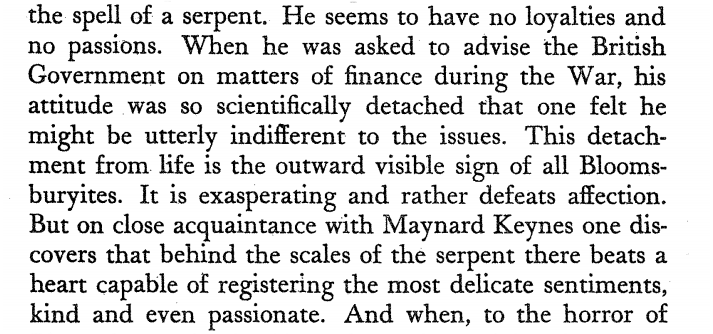
Keynes appears to have soured on Mosley's project in 1933 or 34, although the details are unclear. To his credit, he likely objected as the New Party morphed into a more overtly fascist and politically active organization.
But Keynes also continued to flirt with fascist politics in other ways. For example, see his infamous introduction to the German-language edition of the 'General Theory,' written in 1936. 
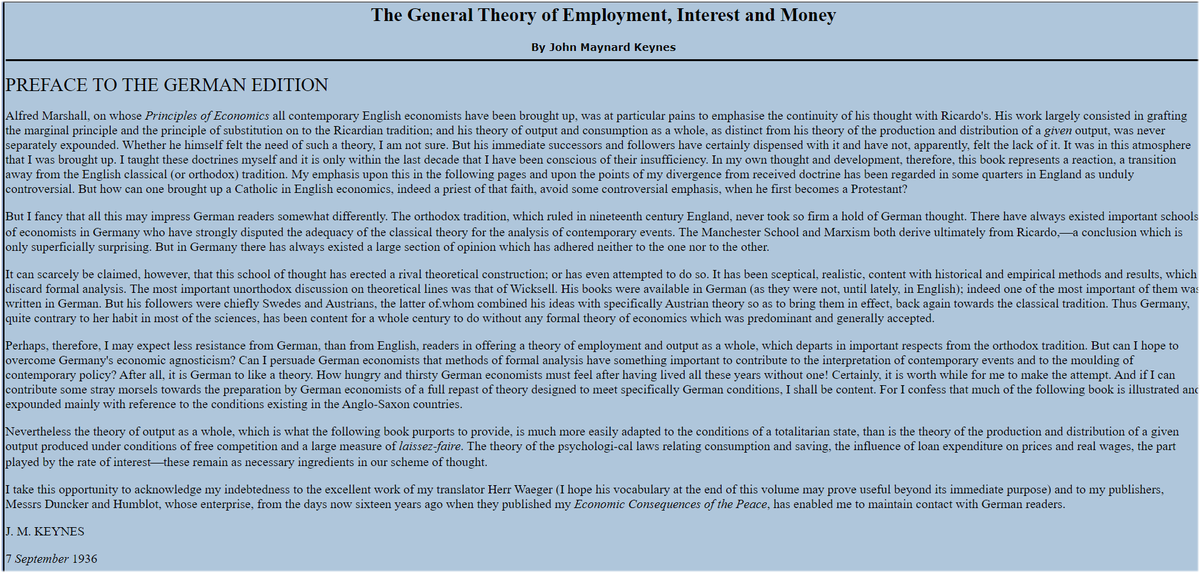
A few more addenda:
First is a passage that Keynes wrote in his notes after returning from Germany in 1926. Keynes's anti-semitism is known, but this should be read in context of the Berlin lecture as well.
First is a passage that Keynes wrote in his notes after returning from Germany in 1926. Keynes's anti-semitism is known, but this should be read in context of the Berlin lecture as well.
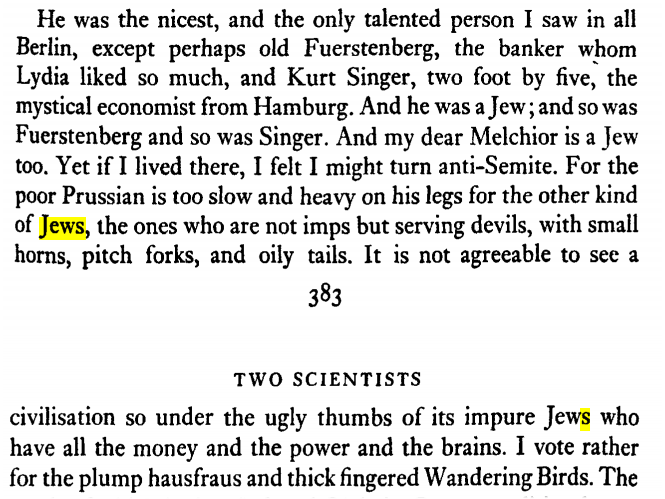
Second, here's the letter that Keynes wrote to Margaret Sanger in 1936 affirming his support for eugenics, and a belief that the birth control movement should shift away from overpopulation and toward eugenic theory. 
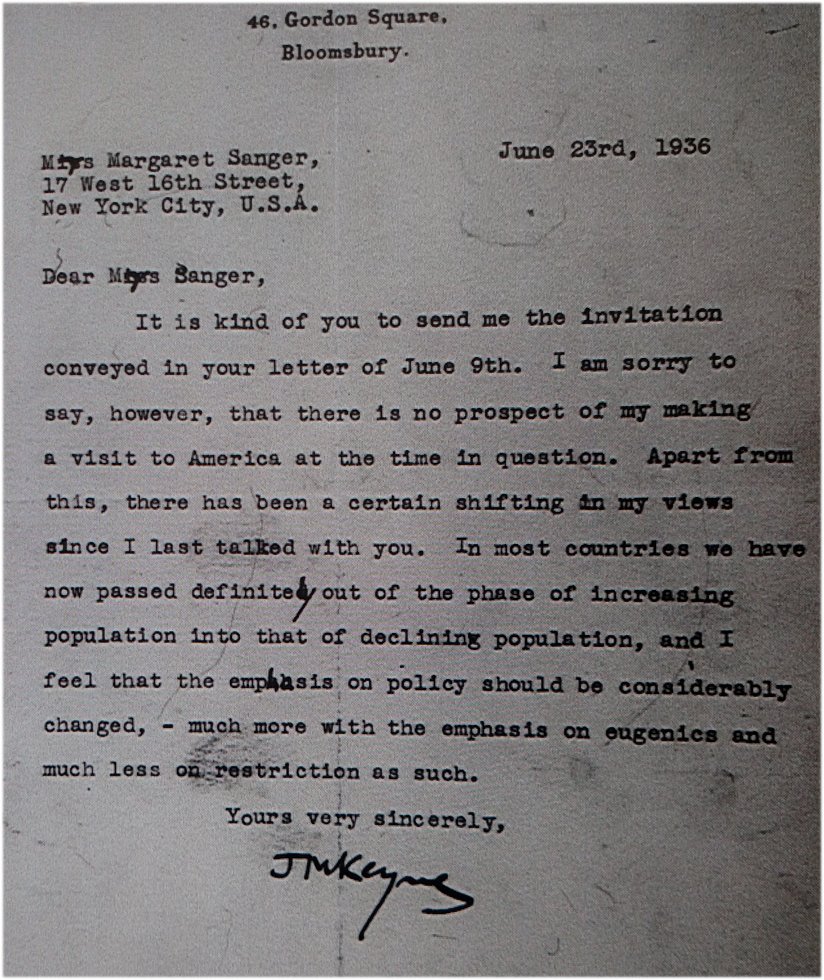
Keynes fortunately recognized the problems with Nazism at the outset of WWII, and threw his support fully behind the allies.
But the documents above show that he had more than a few intersections with fascist ideology on both economic and racial issues between 1926-36.
But the documents above show that he had more than a few intersections with fascist ideology on both economic and racial issues between 1926-36.
Keep that in mind the next time you see someone trying to imply that Mises was a fascist sympathizer (because of a single out-of-context quote), or that Friedman "collaborated" with Pinochet by telling him not to destroy his monetary base.
Keynes's fascist skeletons dwarf both.
Keynes's fascist skeletons dwarf both.
• • •
Missing some Tweet in this thread? You can try to
force a refresh


